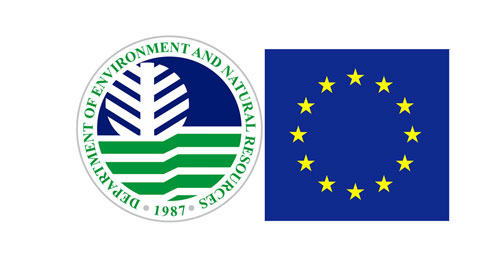
In a historic collaboration, the Philippine Department of Environment and Natural Resources (DENR) and the European Union (EU) launched the Green Economy Programme for the Philippines in Makati City. The programme launch, co-hosted by Secretary Maria Antonia Yulo-Loyzaga of DENR and Ambassador Luc Véron of the European Union (EU) aims to accelerate the country’s transition towards a greener, more sustainable economy.
“At the core of the Green Economy Programme for the Philippines is our collective commitment to promote circular economy practices and waste prevention initiatives,” emphasized Sec. Maria Antonia Yulo-Loyzaga of DENR. “Through collaborative efforts and strategic partnerships, we are determined to pave the way for a more sustainable and resilient future for our nation.”
The groundbreaking programme aims to mitigate environmental degradation and combat climate change while fostering economic growth and social inclusivity. Designed to run from 2023 to 2028 with a budget of 60 million Euros, the Green Economy Programme for the Philippines encompasses four distinct key areas of intervention:
-
- Building Partnerships, Enhancing Policy Frameworks, and Establishing a Multi-Stakeholder Dialogue Platform: Implemented by Germany’s development agency GIZ.
- Local Government Action and Stakeholder Engagement: In collaboration with the private sector and civil society, the United Nations Development Programme (UNDP) will help empower
local government units to take proactive measures towards sustainable waste management and circular economy practices. - Private Sector Engagement and Financial Innovation: France’s technical assistance agency will help engage the private sector and financial industry in promoting sustainable
business practices and innovative financial mechanisms that support circular economy objectives. - Renewable Energy and Energy Efficiency Deployment: the project will also carry out initiatives to accelerate the deployment of renewable energy technologies and enhancing energy
efficiency measures to mitigate climate change impacts.
By working in these four areas, the Green Economy Programme aims to achieve, amongst others, the following results over the next five years:
-
- an estimated 25,000 tonnes plastic recycled and reintegrated into the productive chains;
- at least thirty (30) LGUs to introduce sources of separate collection systems for plastic waste for recycling – at least 6,000 Micro, Small and Medium Enterprises to apply
sustainable production practices through circular supply chain management - creation of at least 2,500 new ‘green’ jobs in businesses linked to the circular economy model
The programme will also help Philippine authorities to achieve the goals of a number of the country’s international climate commitments and national environmental policies. These include the Philippines’ Nationally Determined Contributions (NDC), National Adaptation Plan (NAP), Philippine Action Plan for Sustainable Consumption and Production, and the Extended Producer Responsibility (EPR) law.
“The successful launch of the Green Economy Programme for the Philippines is part of the EU’s new Global Gateway Strategy and shows our commitment worldwide to combating climate change while promoting inclusive economic development,” emphasized the EU Ambassador, Luc Véron. “By working hand in hand with DENR and other key stakeholders, we aim to foster a more resilient and prosperous future for the people of the Philippines.”












